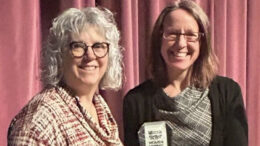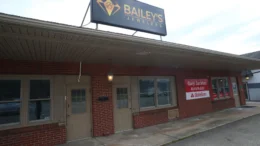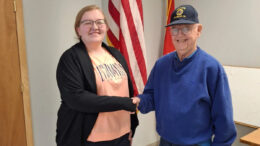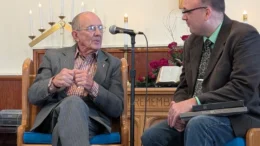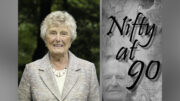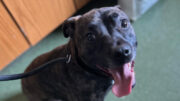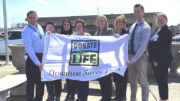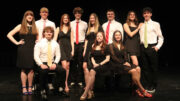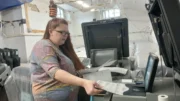CHICAGO (AP) — The video of a passenger being dragged by an officer from a United Express flight shined an unwanted spotlight on the little-known police force that guards Chicago’s two main airports and could threaten the agency’s future.
Chicago’s aviation officers are not part of the regular police force, unlike in many other big cities. They get less training than regular officers and can’t carry firearms inside the airports. Three of them were put on leave amid outrage over how they treated the passenger.
Cellphone footage of the confrontation “really has put it at risk,” Alderman Chris Taliaferro said Wednesday, a day before aldermen were scheduled to grill United and the Chicago Aviation Department about why a Kentucky physician was yanked out of his seat after he refused to get off the full jetliner at O’Hare Airport.
The City Council is looking for answers about the embarrassing video that has been seen around the world. At the top of the list of questions is whether the airport officers even had the legal authority to board the plane, said Alderman Michael Zalewski, who leads the council’s aviation committee.
“They are allowed in the terminal and baggage area, but my understanding is they may not be allowed on a plane,” he said. Zalewski also said that he is not sure if the officers have the authority to make arrests or if they are authorized only to write tickets.
An Aviation Department spokeswoman did not respond to questions about the duties of the aviation police force, but Zalewski said the agency’s commissioner will be asked that on Thursday.
The department will also be asked about training. Zalewski said airport officers receive four months of training compared with the six months cadets must complete before joining the city’s police department.
“We don’t know what that two-month gap means,” he said, adding that he will ask if the airport officers receive the same kind of training in de-escalating tense situations that city police officers get.
The roughly 300 aviation police officers earn between $50,000 and $88,000 a year and cost the city about $19 million a year. They are city employees but not members of the Chicago Police Department.
The agency’s history is a decidedly Chicago story. According to Zalewski, the force was created years ago by the legendary Mayor Richard J. Daley.
“The chief of his bodyguard detail, when he retired, was sent to O’Hare to head up a new security detail … called gate guards.” he said. “In the old days, it was all patronage. It was all clout to get those jobs.”
The department grew and became more sophisticated during the tenure of Daley’s son, Mayor Richard M. Daley. The “gate guards” became “aviation security officers” whose uniforms closely resembled those of city police officers, Zalewski said.
Today, unlike other airport police forces in Los Angeles, New York and Minneapolis, Chicago’s aviation police are not allowed to carry guns.
That fact drew attention earlier this year when, in the wake of a shooting at the airport in Fort Lauderdale, Florida, CNN reported that the officers were told that they would not be dispatched to calls of disturbances in some areas, including baggage claim.
Taliferro has proposed an ordinance that would allow the officers to carry guns. He acknowledged that Sunday evening’s event make passage of that proposal much tougher. Zalewski called it all but impossible.
The city also assigns approximately 200 regular police officers to the two airports, all of them armed. One possibility for reform could be to disband the aviation force in favor of more city police officers, though Taliaferro thinks that is unlikely.
Zalewski said he has talked to Aviation Commissioner Ginger Evans, describing her as “livid” about the passenger’s treatment. But he will not say what, if any changes she might recommend when she speaks to the committee on Thursday.
One thing has already changed: On Wednesday, United’s chief executive said the carrier will no longer ask police to remove passengers from full flights.








